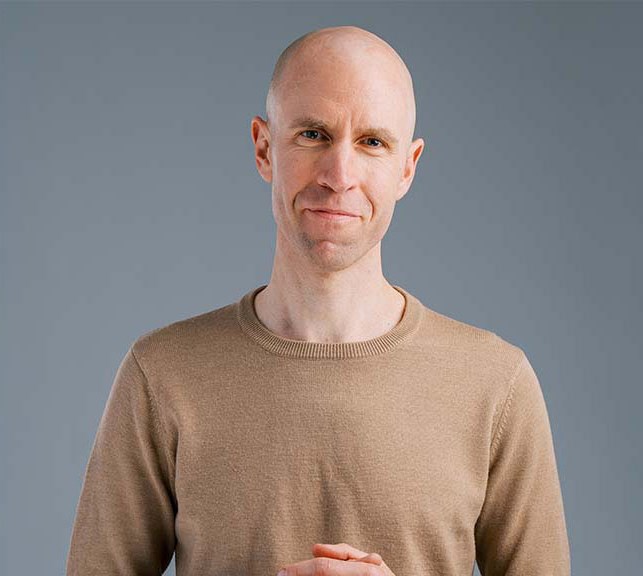SASKATOON — A University of Saskatchewan (USask) PhD student used his dissertation to work together with the people of Pleasant Hill, one of Saskatoon’s core neighbourhoods.
As Joel Bernbaum prepared to graduate from the Inter-D (Interdisciplinary Studies) PhD program at the USask Fall Convocation on Nov. 13, he reflected on the tangible outcomes of his dissertation.
“With my privilege as an artist, but also my newfound privilege as a PhD student, I wanted to do something ... in collaboration with Pleasant Hill that would hopefully support them in some way as a community.”
As a theatre artist, Bernbaum approached his degree with the idea of creating a city-wide play in Saskatoon. His initial idea changed when he learned of five homicides that took place in the neighbourhood of Pleasant Hill in 2019.
One of the most diverse communities in Saskatoon, the core neighbourhood has a reputation of having one of the highest crime rates in the city.
“I changed my idea because I’ve always thought—and I’ve always been taught—that being an artist is both a privilege and a responsibility,” he said. “A privilege because we get to make art and a responsibility because we should use our privilege for good.”
Pleasant Hill is a neighbourhood near to his heart. Whenever the Sum Theatre co-founder would bring plays to the community, the Pleasant Hill shows were always well-attended. He wanted to return the support.
“It’s not my community—I don’t live there—but as a citizen of this city, when there’s suffering in one community, I think we all suffer.”
Though he didn’t live in the neighbourhood, Bernbaum had connections. He had developed a strong working relationship with Jennifer Altenberg, who was the president of the Pleasant Hill Community Association at the time, and he connected with other community organizers active in the association.
Bernbaum facilitated conversations with community members. He used their words to create a verbatim play based in Pleasant Hill. He interviewed 100 people who were living in the community to create the script of Pleasant Hill Talks with his collaborator Yvette Nolan. This play served as the main part of his PhD dissertation.
“One of my main inspirations was this idea that community is a verb, and not a noun,” he said. “Community has to be constantly happening.”
In the verbatim play, community members voiced their concerns about their neighbourhood—including safety, housing and food security.
It was also an opportunity for residents to speak about their dreams for the community. One issue that emerged: Pleasant Hill was one of the only communities in Saskatoon without an outdoor rink for children.
“If you’re a kid in Pleasant Hill, you either don’t skate, or you have to go to another community to skate,” he said.
Bernbaum joined with community leader David Fineday and other community members in mobilizing and bringing the issue to the attention of Saskatoon City Council. The Pleasant Hill Community Rink is now a municipal project in progress.
After creating the play, Bernbaum presented it to about 200 residents who turned out to see it.
Bernbaum noted that his dissertation wouldn’t have been possible without support from his Inter-D supervisor Dr. Ryan Walker (PhD), a professor in the Department of Geography and Planning.
The Inter-D program allows students to design their own graduate program with oversight from faculty members.
“To me, Inter-D is like, ‘Choose-Your-Own-Adventure,’” he said. “You get the best of the university because you tailor-make it ... and choose faculty and classes.”
“I think it’s the best kept secret of the university ... Nothing against other programs, it’s just an amazing thing to be able to curate your own experience,” he added.
Bernbaum took a variety of courses to complete his PhD—including an Indigenous methodology and critical pedagogy created by Education professor emeritus Dr. Verna St. Denis (PhD) and Indigenous Studies professor emeritus Dr. Priscilla Settee (PhD).
He had the opportunity to travel and learn from international companies that engage in community through creativity—including Forklift Danceworks in Austin, Texas and Big hART in Australia.
His PhD committee was made of faculty members from Indigenous Studies, education, geography, theatre, sociology and social work.
“The Inter-D program is graduate studies at their best,” he said. “It allows scholars to pursue questions that they have personally about the world, and about themselves.”
Looking at the work he conducted during his PhD program Bernbaum noted that he was interested in learning about the role theatre can play in bringing people together to actively practice community.
“I’m grateful for the opportunity to have not only learned, but also to have collaborated with so many community members and build relationships with them ,” he said. “Nothing meaningful happens because of one person—it’s always multiple people working together.”




